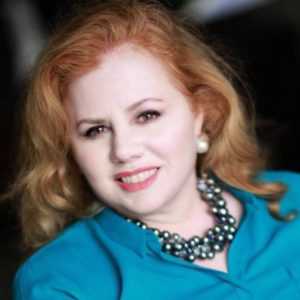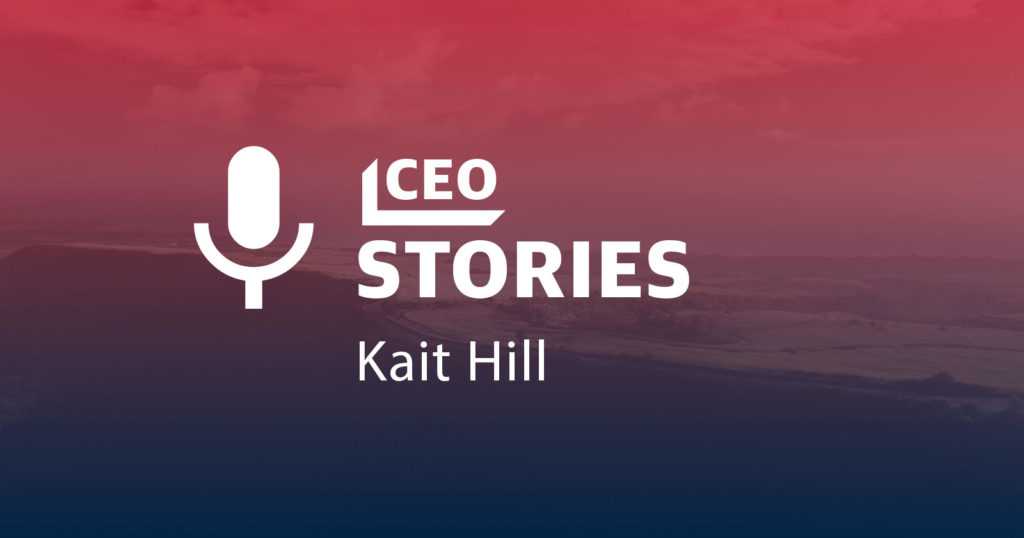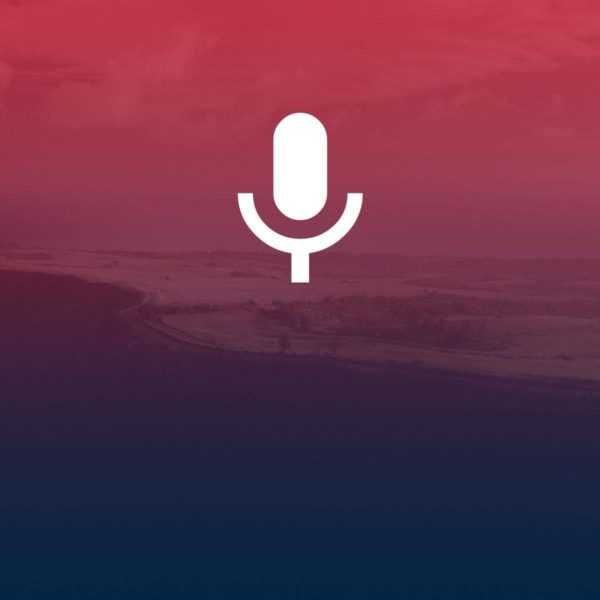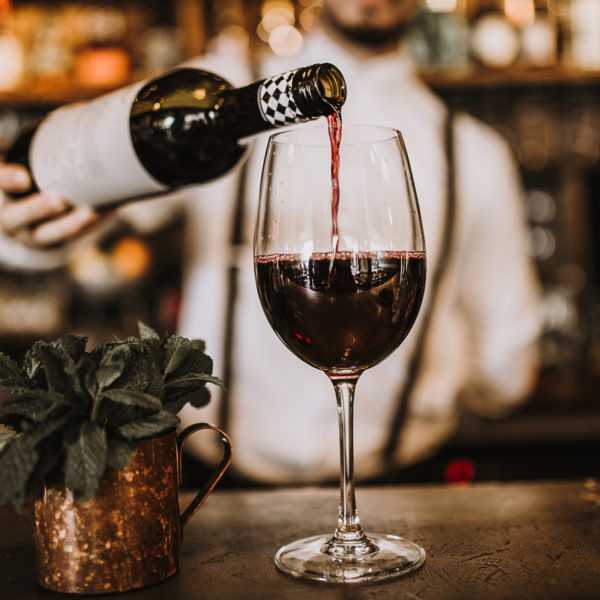CEO Stories with Kait Hill, Rock City Digital


Kait Hill, founder of marketing agency Rock City Digital, found herself between a rock and a hard place her last semester of college. The choice: finishing school or starting her own business. At 21, she took the plunge and became a business owner.


GOING OUT ON HER OWN
Hill was no stranger to work when she founded Rock City Digital some seven years ago. She had started working at 15, and by 20 had already switched from working in politics to having her first corporate job. Less than optimal treatment in both her political job and her agency job convinced her she could do a better job of running a business and being a boss, so she took the leap. Her thinking was, “If they could do it, I figured I probably could too.”
CREATING A POSITIVE CULTURE
The last straw in her agency job, Hill says, is when she was bullied about a commission and the higher-ups refused to do anything about it on the basis that the person in question was a “high-performer” – as was Hill herself. She vowed then to not only create a great business but a great place to work, and she is constantly focusing on how she can help not only her clients, but her employees succeed.
THE FUTURE OF BRANDS
Covid changed branding, says Hill. The fact that individual content creators had enormous amounts of time on their hands combined with the fact that everyone’s focus was on remote work and digital experiences put extra emphasis on video, and platforms became more welcoming and competitive about video content. The consumption of content and the type of content in favor changed simultaneously, giving enormous power to creators. She predicts that personal brands are becoming the next cornerstone of marketing.
Read Full Transcript
POC: So today I am talking with Kait Hill, who is the founder and CEO of Rock City Digital. Kait, thanks so much for joining us today on This is Capitalism.
KH: Yes, thank you so much for having me on. I am excited to talk with you.
POC: Kait, you founded this company, as I recall, when you were quite young. Do you want to give us some specifics about that?
KH: I started working when I was 15 years old. So by the time I was 19, I had my first salaried position. At 20, I had my first corporate position. And by this time I had a lot of experience in the workforce and saw a lot of issues with how things were run and how cultures weren’t really tended to. So finally when some things happened at the agency I was working at and I was a bit mistreated and they didn’t want to do anything about it, at 21 years old I decided to start my own company because I figured if they could do it, I could probably do it too.
POC: That is a pretty audacious step, Kait. Were you still in school at the time?
KH: Yeah. I actually had to make a really tough decision because when I was working at the corporation I was going to school online and working.
And I ultimately decided to start a business because I always knew that if I wanted to come back to college that would always be there for me but I had the passion, I had the drive, I knew what I wanted to do. So I decided to start the company.
POC: Did you always want to be an entrepreneur?
KH: No one told me that I had entrepreneurial traits but I can remember them back from when I was eight years old. So even though I didn’t know I technically wanted to be an entrepreneur, I was always finding ways to make money and to make sure that I could buy whatever I wanted.
POC: What was your first job? Was it the traditional proverbial lemonade stand?
KH: Yeah, it actually was a lemonade stand. And then I would help our neighbors with their garage sales and I would get some commissions or get paid to help them with their garage sales.
POC: How did you end up with media, digital media specifically?
KH: It actually was a weird turn of events. I was a political science major because I liked the study of political science. I got recruited to work in politics when I was 18, 19 years old. I did that for about six months and during that time I was working on a petition and I met a guy very randomly downtown and he did not want to sign my petition but I convinced him to.
And he ended up being a digital sales manager at a local TV station in downtown Little Rock and we became very close. And I told him what I hated about my job and what I wanted in a job and he helped me get into digital media.
POC: All for selling him on signing a petition.
KH: Yes. It was a crazy turn of events but I was always a high performer and I wanted to get paid for being a high performer. So I was explaining that to him, he told me I should be in sales. And that was something I had never even considered before.
POC: Did he become a mentor, would you say?
KH: Not really a mentor but he did help me through the interview process. For example, I was putting out applications and one agency didn’t get back to me and he said you need to look up the person in charge and call them and ask for an interview. And I never would have done that and that was the job I ultimately ended up getting.
POC: What has been the most surprising to you about starting a business? You have been running this business now for about eight years?
KH: Like six and a half, seven years, somewhere around there. The most surprising would be how much you have to handle problems. There’s always something you have to learn and the biggest lesson I think I have learned over the past few years is that if you can develop yourself personally that is going to be your best investment.
There are always going to be things that you don’t know and you don’t know how to solve but if you train your mind, your body, your spirit, you can handle anything because it’s not like everyone else knows how to handle these problems either. For example, Covid was a really big one. No one knew what to do, no one knew what was going on. But if you had those skillsets and habits to fall back on you could operate with much more clarity.
POC: What did you have to do as a business owner and leader during Covid?
KH: Oh man, it was a really unsettling time for everyone. No one knew if you were going to have all of your clients drop off. Because we work in the business-to-business space so it was ultimately up to our clients and how they were going to do during Covid.
I went straight through our finances, made sure we cleaned up anything, if anything needed to be cut I could get rid of it. I also talked to a lot of other business owners and agencies around town to see what they were doing to prepare. But also, our team would go out on site to clients.
The biggest benefit I think from that was being able to connect with other local business owners that I wouldn’t have met before because everyone was searching for answers and everyone was willing to share what they were doing.
POC: Were you an in-person office until then or were people working remotely?
KH: We have always been remote so we had a leg up there, which was extremely helpful.
POC: When you talk about personal development and making yourself fit, if you will, to handle any situation, any problem, can you talk a little more about what you view as personal development?
KH: So the first thing that truly set me on the personal development path was a book called The Miracle Morning by Hal Elrod. And essentially it’s a process that you follow and if you do this every morning your life will dramatically change. It’s called the SAVERS method. It includes meditation, exercise, reading, affirmations, visualization, and journaling.
So if you can navigate hard situations and see things with more clarity versus negative emotions you’re going to be able to handle hard conversations much easier. You’re going to be able to see the root cause of a problem versus the actual problem. And when you are able to understand a root cause versus getting upset at what the problem is, you can operate with a level of clarity that helps other people develop themselves and ask themselves deeper questions too.
POC: How does a busy person like you find an hour to meditate?
KH: If you wake up earlier you can create time in your day that you didn’t have before. So I wake up really early but it’s because I’m doing things that are going to improve the way I live my life.
When you’re very busy it’s hard to meditate but when you have a lot swirling in your mind – this is a lesson I have learned recently – you can’t think as clearly. And it is way harder to meditate in that state but that is the importance of meditating in that state is to calm down your mind so you can think more clearly.
POC: What do you see as really affecting the digital media space right now? You said you’re in the B-to-B side of it, so what forces are influencing business right now for you?
KH: There has been so much change in the digital space since Covid. Everything is changing online. First off, TikTok came onto the scene and really took off, which changed the way videos are online. You see YouTube has YouTube Shorts, Instagram has Reels. Facebook is now going more video-centric.
So not only do you have a shift in the way that people are consuming content, the type of content that is being consumed is so niche now. Because TikTok has the most insane algorithm I have ever seen. They are able to figure out what you want to see before you even know that you want to see it, before you even know that you’re interested in it.
So you’re able to build these niche communities online, which is amazing, but it is going now to creators versus brands. So you’re seeing a massive change. And brands are still there, they are still alive, they are still building, it’s important, very important for credibility, but you’re seeing a change into personal brands becoming the next cornerstone of marketing.
So I am, first off, playing around with some personal branding on LinkedIn too because I want to understand how it works, I want to be able to build a community online. Because if you can build a community around your brand that will follow you for life. And if you can tie that strategically to your business it’s a win-win situation.
POC: So what do you see as the difference here in terms of branding and people putting themselves out there as a brand?
KH: So there is a lot changing in the influencer space. The No. 1 thing is going to be authenticity. So influencers in the past kind of had a very beautifully curated feed. Instagram is known for that, right?
TikTok took it a different way and said “I can have my hair not done, no makeup on, it doesn’t matter.” As long as the content is adding value to my users, that’s what’s going to grab attention. So you went from this visual influencer, which is still alive and well, to this not technically visual influencer who is all about specific types of content.
I think the future is creators. I think individual creators is where all media will eventually go and they are going to hold a lot of power, but we are still very early-game as people try to figure out what exactly that looks like and where can we connect the brand with the creators in an easier way.
POC: What does this mean for strong brands in the traditional sense?
KH: It’s still so important to be active as a brand on social media. If you are not, you are not going to be a credible brand for the millennials and younger generations for sure.
Search is even changing for our generation. When I’m looking for a hair stylist I’m looking on Instagram because it’s visual. When I’m looking for food in a city I’ll go to TikTok or Instagram because it’s visual and I can see it.
I also encourage people on my team to build their personal brands. So by having a mix between traditional brand media, traditional brand social media and a more personal touch, you’re going to go much further.
POC: Brands always had the chance to present visually though. You had Pinterest, you had YouTube videos, you had… When cell phones were able to put really high-functioning cameras in there, people had the ability to create short videos and produce them on demand. So what has shifted?
KH: The way people consume has shifted. So, Vine came along, that was our first short-form video, right? But they failed as a company. People were still putting out videos. And doing videos has always been very helpful. My agency, we’ve done videos since our inception. But the types of videos, the length of videos, the content of videos has changed dramatically.
Whether it’s becoming more creative, hopping on a trend, being more informational and adding value, there is so much of that out there, that if you’re not meeting it to a certain level your brand is not going to get a lot of exposure.
Because the way the algorithms are working now, it’s not chronological like it used to be on Instagram, it’s based on what you are going to be most interested in. And they determine that by a lot of factors – whether it’s how long you watch a certain style of video, did you comment, did you like it, did you rewatch it – and they categorize all of this information.
POC: Do you find yourself having to train your clients, teach them about this?
KH: You have some clients that are interested and some clients who don’t quite get it yet, which is okay. Because as long as they are there, that’s what matters. They need to show up. If I’m looking for a business and I am on their website and I click out to their Facebook page and they haven’t posted in two to three years, I’m going to think they’re probably not operating.
POC: How did you become so high achieving at such a young age?
KH: I grew up really poor. I had no resources, I had no connections, I had no education, truly. But what really helped me was hearing what successful people were doing. And even though I didn’t understand it, I said I would try it.
For example, I always knew that you needed a mentor. I didn’t understand the value but I found someone that I enjoyed talking to that had owned a business for 20 years and I asked them to be my mentor. We didn’t have a structure, we would meet up for dinner, just chat business, and it would be in the smallest situations that he would give me life-changing advice. At each level there is always somebody above you that you can learn from.
Books have also helped tremendously. Some of the greatest thinkers and operators and business owners have written books and they tell you what they’ve learned and how they do it. So being able to read and consume that information and extrapolate that to my own business has been extremely informative.
POC: Interesting that you say you didn’t have exposure or necessarily knowledge of a lot of things growing up because of your circumstances. So what lit the spark? How did you see that there was something else, let alone achieve it? I think for some people half the battle is knowing it’s out there.
KH: I didn’t want to have to struggle like my family did. So I decided… I was like, “I’m going to provide for myself.”
So my drive was at first completely money because I did not want to struggle and I didn’t want to have to say no to things that I wanted to do. But the second side of that was I have always had a drive to help people, regardless of who they are and to help them succeed and for people to be treated fairly and right. I tried to be a good person where I worked and I was also a high achiever but still being mistreated by people. And I just didn’t think that made sense.
POC: Are you comfortable talking about what you’ve referred to twice now as mistreatment?
KH: I was working in politics seven days a week, over 80 hours a week. I had to go to the doctor because I was pretty sick one day and I was 20 minutes late for our morning huddle but I even called in and I got yelled at when I got there even though they were already aware of this.
And I remember sitting there, thinking I am quite literally sick, I had to go get a shot, and I had no other time to go to the doctor and I’m going to be yelled at for this? I quit not long after that at all because I knew I didn’t want that for my life.
POC: Did you have another job to go to when you quit?
KH: No. That was the first time I did it, which was very, very scary. But that’s when I finally, like a month or two later, got into marketing.
POC: Well that was severe mistreatment in the workplace, Kait, and I’m sure it also has helped influence the way you treat employees.
KH: That was definitely not the only time I was mistreated throughout my career. But in my marketing job, I was mistreated by a man that was double my age. I was 20 at the time, and I made a sale and he was kind of bullying me about this commission.
And it got really awkward so I went to the highest person in the company that I knew at the time, I let them know what was going on, I let them know I was uncomfortable with the situation, and he looked at me and said, “There is nothing we can do, he is a high performer.”
POC: But you were high-performing!
KH: Exactly. I always hit and exceeded my goals, I was a great co-worker. And to say that he wouldn’t even say anything to him blew my mind. And at that point I was like, “If these guys can do it, I can do it too.”
POC: So how soon did you quit that job?
KH: I think it was probably a month or two after that conversation. I quit I think on a Friday and then I went full in on my own business on a Monday.
POC: Kait, you have given so many great pieces of advice here…any last bit of advice you have for somebody who is either thinking about starting their own business, looking for a mentor, even experiencing some…the kind of mistreatment at work?
KH: I think my biggest mindset that has helped me do anything in life is asking, “What is the worst that can happen?” And if the worst that can happen is you failing that’s okay because you’re going to learn something from that that you can take on to your next job or your next venture.
You should ask that mentor that you admire to be your mentor. You would be shocked. I asked somebody who I thought would never in a million years be my mentor. I was shaking sending the e-mail. And now he’s my mentor.
Ask for that mentorship, ask for that raise, go out and do something on your own, the worst case, you can get another job, it’s not the end of the world, just don’t be fearful.
POC: What is next for Kait Hill or what is next for Rock City Media?
KH: Our biggest goal right now is spreading workplace awareness and cultural awareness. We built our entire company based on treating people with the respect and autonomy they deserve and in turn they helped build an amazing business that everyone wants to be a part of.
POC: Kait, where can we find out more about Rock City Digital?
KH: You can find us online. We’re Rock City Digital on Instagram, Facebook, TikTok, LinkedIn, and you can find me personally on LinkedIn as well.
POC: Great. Kait, thank you so much for joining us today and thank you for listening to This is Capitalism. I’m Patricia O’Connell. Join us again.
About the Series: Featured stories from the intersection of the free market and entrepreneurial success. Here we speak with leading CEOs, academics, philanthropists and up and comers on their contributions and perspectives on the American economy.
About Patricia O’Connell: Patricia O’Connell serves as Editor in Chief of “This Is Capitalism,” a content site sponsored by Stephens Inc., and is host of the site’s podcast series, “CEO Stories.” Patricia, a former editor at BusinessWeek and a New York Times best-selling author, brings her experience as a journalist and her passion for storytelling to “This Is Capitalism.”

